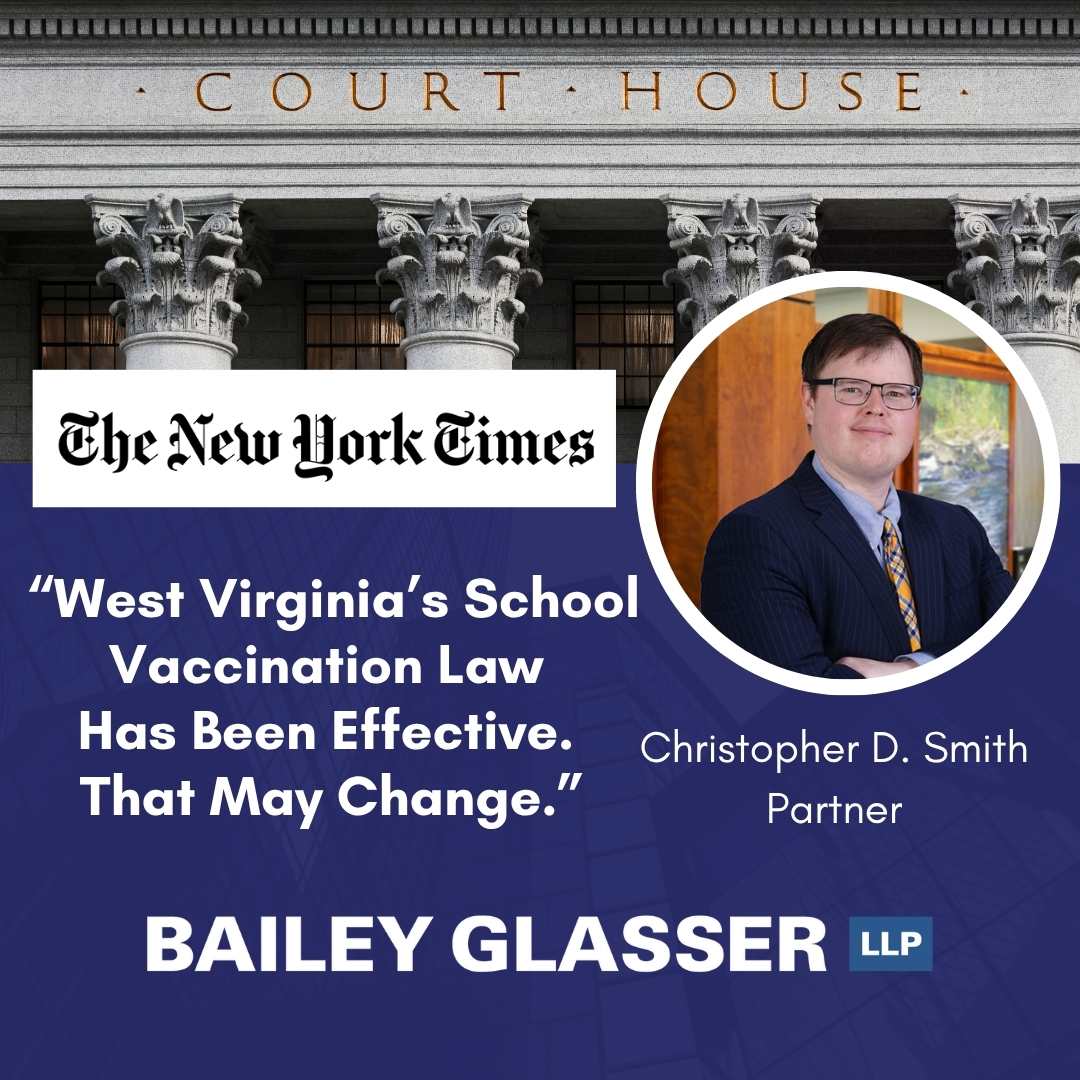Partner Chris Smith Quoted in New York Times

Bailey Glasser partner Christopher Smith was quoted in a New York Times article titled “West Virginia’s School Vaccination Law Has Been Effective. That May Change.”
The article discusses ongoing litigation in West Virginia concerning the state’s 80-year-old mandatory vaccination statute, which requires all students to be vaccinated in order to attend public schools. West Virginia allows medical exemptions to the vaccine requirements for students whose health would be compromised by vaccines, like immunocompromised students. It is the only state which has never allowed religious exemptions. Alone among its surrounding states, West Virginia has not had a measles outbreak in over two decades.
The recent controversy emerged following an executive order by the state’s governor, which purports to permit religious exemptions as implemented by the state’s Department of Health, contrary to the vaccine law, which is implemented by the West Virginia State School Board. Multiple lawsuits have been filed in different counties, some challenging the Governor’s Executive order, some challenging the Board of Education’s refusal to accept religious exemptions.
Bailey Glasser represents the West Virginia Board of Education, which has followed the mandatory vaccine law in order to protect the health and welfare of all the children in the school system, as well as those who work in the system and the families and communities where they live. Mr. Smith appeared before a Circuit Court in Raleigh County, West Virginia arguing on behalf of the West Virginia Board of Education.
In addition to Mr. Smith, Bailey Glasser lawyers involved in this litigation include founding partner Benjamin Bailey and associate Denali Hedrick.
To read the entire article here (gift link): https://ow.ly/ows950XiuoO